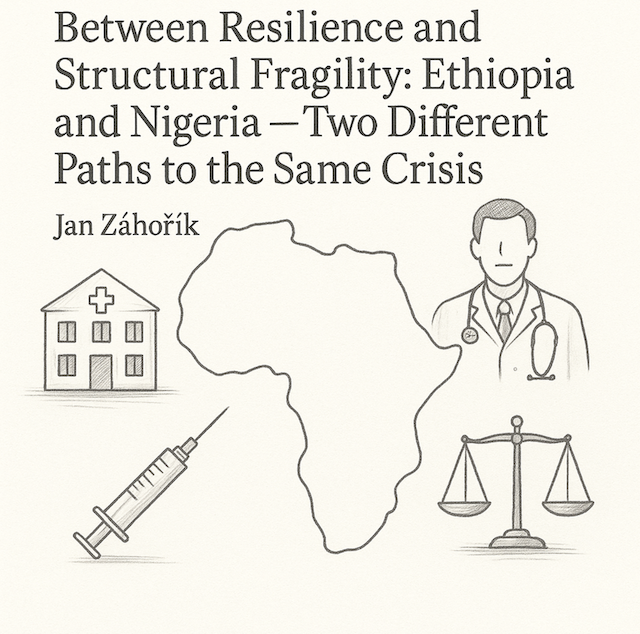Nigerians like to talk about their country as a "giant of Africa", and in many ways it is true. It's GDP annually ranks in the top three on the continent, along with Egypt and South Africa. In terms of West African economic output, Nigeria's GDP is larger than the rest of the region combined. Lagos itself is a booming and bustling megacity that, if independent, could be the sixth largest economy in Africa. While these figures are impressive, not all is well for ordinary Nigerians. Eight years of Buhari's presidency have led to a dramatic deterioration in security, with all forms of banditry, kidnapping and murder becoming almost daily occurrences if you follow the local Nigerian media. The regions most affected by these criminal activities are in the north, in Sokoto, Kaduna, Katsina, Borno, etc. But crime and violence are also reported from the south, from Port Harcourt, Lagos and many other cities. If people get on the "wrong" bus, they can be robbed by the "driver" and his accomplices. It would be difficult to find anyone in Nigeria who has not heard such a story from their network or from someone close to them.

Despite its enormous wealth, mainly from oil, the majority of Nigeria's population (over 200 million) lives in very modest conditions, given the enormous social inequalities that can be seen almost everywhere in the country. After President Tinubu came to power in 2023, many things began to change in Nigeria and steps were taken to consolidate public finances. However, these reforms have led to an increase in the price of basic commodities and a greater burden on the average citizen. These reforms include the end of the fuel subsidy regime and the unification of the exchange rate. According to the African Development Bank, the long-term benefits should outweigh the short-term difficulties and losses.[1] There is also hope for the Tinubu government's new anti-corruption approach, as dozens of Nigerian citizens have been accused of illegal mining, smuggling and sponsoring banditry and terrorism. Given that Nigeria has 44 minerals (in addition to significant oil deposits), 6 of which are in global demand,[2] this is an important step if the money is used wisely in order to invest and promote socio-economic growth.
Nigeria is also a key factor behind ECOWAS, the Economic Community of West African States, established in 1975 by the Treaty of Lagos. ECOWAS is made up of fifteen West African states and although its original mission and vision was to promote free trade in the region, it has become better known for conflict resolution, peacekeeping missions, democracy promotion, etc. It is easy to say that without Nigeria - given its economic power and dominance in West Africa - there would be no ECOWAS. In recent months, however, ECOWAS has experienced turbulent times as a result of changes in some of the Sahel states - Mali, Burkina Faso, Niger - where a series of coups led to the departure of French forces and the arrival of Russian military interests. Following the coup in Niger in July 2023, ECOWAS, led by Nigeria, imposed sanctions on Niger, which had a devastating impact on civilians on both sides of the Nigerian-Nigerian border, as the sanctions decimated cross-border trade and put the livelihoods of many at risk.[3]

As a result, the bloc of disaffected countries decided to form their own alliance of Sahel countries and leave ECOWAS in January 2024, citing a loss of confidence as the community moved away from the vision of its founding fathers. Almost immediately, the sanctions were lifted and the bloc of countries asked to rejoin ECOWAS.[4] Observers from all over began to discuss the end of democracy in West Africa after the split, as well as the question of the (dys)functionality of the whole community. The slogan of the ECOWAS Vision 2050 is 'Peace and Prosperity for All'[5] but the recent split has exposed the enormous inequalities that exist within the region, which are unlikely to be overcome in one generation. Countries such as Mali, Niger and Burkina Faso are severely affected by violence, banditry and terrorism, while state institutions remain weak and dominated by personal interests and informal practices. Moreover, the French influence, manifested in the existence of the CFA (West African franc), among other things, is difficult to eradicate even after the withdrawal of French soldiers. Russia does not have the capacity to fully engage in the development of any African country, and its main interest is to destabilise the Sahel region as a kind of proxy against the EU.[6]
In such a situation, Nigeria can play an enormous role of a stabilizing factor if things go well with the reform agenda under Tinubu government. Nigeria itself needs more stability so that its economic performance can be boosted for not only the benefit of ordinary Nigerians, but for all the West African community. Niger in particular is dependent on Nigeria’s electricity supplies. If Nigeria is able to eradicate high level criminality, overcome short-term difficulties with the initiated reforms, it can turn in a long-run into a real “giant of Africa” serving as an inspiration for other West African countries. It is also important for the survival of democracy or better to say for the real initiation of democratization process in West Africa which has been put on hold due to the reasons indicated earlier. Therefore, it seems that there are many challenges waiting for Nigeria in order to play the role of the regional hegemon without being accused by other states of being under influence of the West.

[1] See https://www.afdb.org/en/documents-publications-africas-macro-economic-performance-and-outlook/west-africa
[2] See https://www.vanguardngr.com/2023/12/top-nigerians-involved-in-illegal-mining-funding-banditry-terrorism-minister/
[3] https://www.crisisgroup.org/africa/sahel/niger/ecowas-nigeria-and-niger-coup-sanctions-time-recalibrate
[4] https://www.crisisgroup.org/africa/west-africa/nigeria-sahel/what-turmoil-ecowas-means-nigeria-and-regional-stability
[5] See https://ecowas.int/wp-content/uploads/2022/09/Vision2050_EN_Web.pdf
[6] Personal communication with an expert of security issues in West Africa, Lagos, April 5, 2024.
.png)







